DHAKA METRO RAIL: Engineering new lines of youth employment
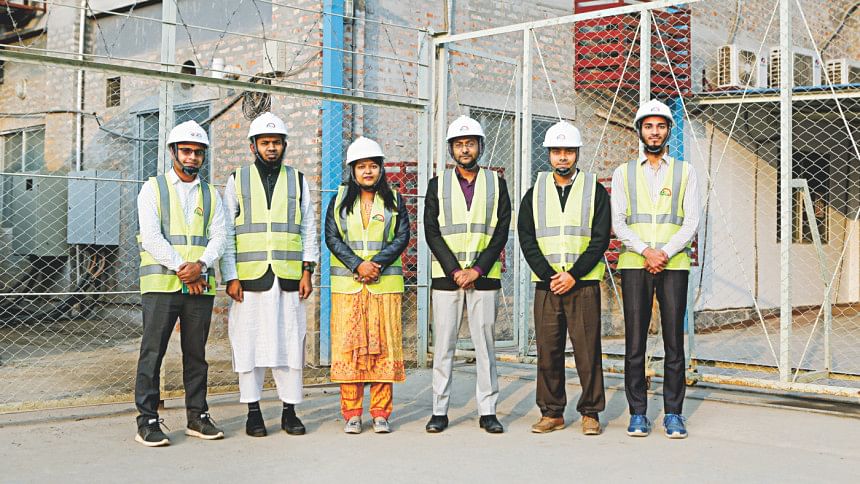
One of the biggest initiatives taken by the government in digitalising Bangladesh is the Mass Rapid Transit (MRT) project, commonly known as the "metro rail". The project is planned and executed by the Dhaka Mass Transit Company Limited (DMTCL), a government-owned company. Stretching its borders from north Uttara to the south in Kamalapur, the metro rail will run 128.741 kilometres (a 61.172-kilometre-long underground track and 67.569-kilometre-long elevated track), accommodating traffic-free and quick travel for Dhaka dwellers. This enterprise not only aims at overcoming the never-ending traffic congestion of this megacity, but has emerged as a new employment industry for the nation.
M A N Siddique, former secretary and Managing Director of DMTCL, mentions how the government plans to run MRT without appointing foreign officials. He also shares how they are very eager to work with fresh graduates. "As the MRT is a very sophisticated and integrated communication method, we look forward to it being the best not just in Bangladesh but all around the world," he said. "In order to do so, we are hiring qualified and talented engineers from all across the country."
Engineers who have freshly graduated from engineering universities including Bangladesh University of Engineering and Technology (BUET), Khulna University of Engineering and Technology (KUET), Chittagong University of Engineering and Technology (CUET), and the Military Institute of Science and Technology (MIST), are being recruited by DMTCL.
The Dhaka MRT network will run on six lines, and a total of 104 (53 underground and 51 elevated) stations are being built along its path. Nineteen assistant managers, thirty-five station controllers, nine section engineers and a train controller is already working in DMTCL. Furthermore, almost 2000 young and promising Bangladeshis, including 109 section engineers, are being recruited to operate the whole MRT communication system.
"We prefer candidates with a CGPA of 3.50 in their undergraduate and postgraduate degrees," Siddique added. Furthermore, 1919 young and promising Bangladeshis, including 109 section engineers, are being recruited to operate the whole MRT communication system. "We prefer candidates with a CGPA of 3.5 in their undergraduate degree and masters," he said. "957 employees (40-45 percent of the recruitments) are directly being done by DMTCL. However, the rest of the recruitment process is taken care of by our third part consultants BUET and MIST as we believe their expertise will help choose the best. About 40 to 45 percent of the recruitment is done directly by DMTCL. However, the rest of the process is taken care of by our third-party consultants BUET and MIST as we believe their expertise will help choose the best."
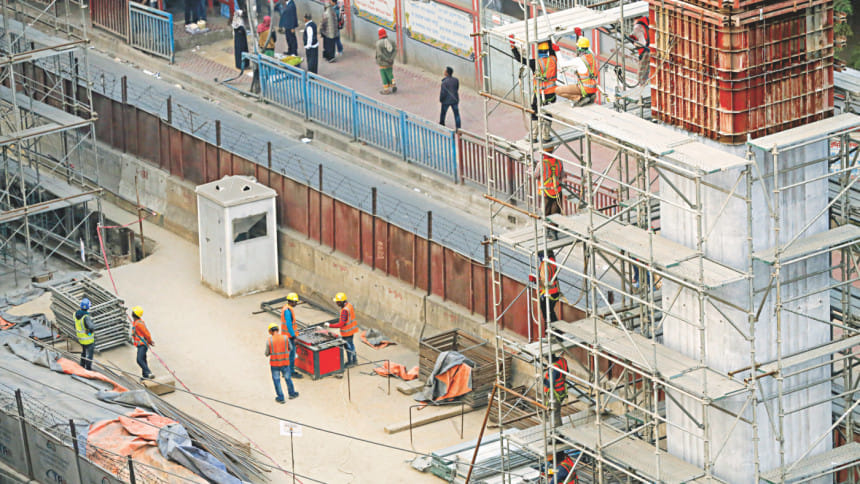
The recruitment process is currently underway. The first batch of DMTCL employees have recently returned from their initial compulsory training, and are currently employed in different MRT workstations.
The new recruits have to undergo a long five-stage training process in order to prepare for their job responsibilities. The training, facilitated in groups of 40, starts with an orientation programme which introduces the new employees to the MRT.
"The concept of a metro rail is very new to all of us, and our recruits are no different. Thus, the orientation programme first provides our new recruits with a basic knowledge about what metro rail is and how to establish the trend of this new mode of transport," Siddique mentioned.
This introduction is followed by an intense training session at Bangladesh Public Administration Training Centre (BPATC), where the first-grade officers receive the same training that every Bangladesh Civil Service cadre undertakes.
A second set of trainings is held at Railway Training Academy in Port Colony, Chattogram where new employees learn how the railway system works in Bangladesh. "This is a technical level training where the new recruits study and observe the fundamentals of the railway system and how it is operated in an administrative level," he said. "The MRT operating process is very similar to the Bangladesh railway. Therefore, we want them to have full knowledge about rail communication, its technical aspects and its operation process."
The MRT will be a web-based system, which will function from an Operation Control Centre (OCC). The cloud-based electronic trains will be completely operated from controlled stations. The communication system will be backed up via means of optical fibres and wireless communication in case of communication failures.
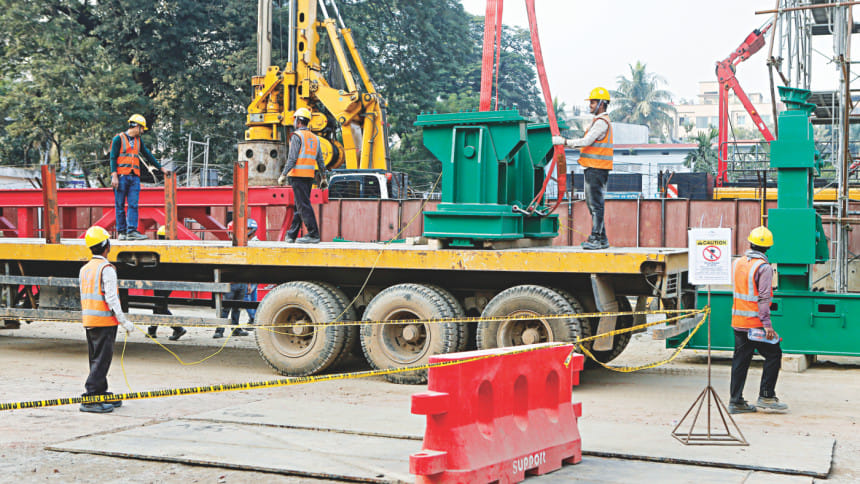
Bearing this in mind, the third set of trainings take place at Telecom Staff College (TSC), the core training institution for the members of Bangladesh Civil Service Telecommunication Cadre, regulated by Bangladesh Telecommunications Company Limited (BTCL).
Finally, after completing all the basic training and with an overview of the whole MRT operation system, the recruits will be sent to Delhi Metro Rail Academy (DMRA), India, to participate in a cluster training programme. After the completion of this training, the new recruits will then get to apply their theoretical knowledge into practice.
"This is much like an internship programme where, after gathering technical knowledge on all the elements related to the metro rail, the graduates will now have to demonstrate their knowledge," Siddique added. "After they finish this training, they will first work as assistants to train operators in India and then, after they have learned about the whole process, they will participate in running the MRT system under expert supervision. Only the ones who will perform exceptionally well will be appointed as train operators."
The first intake of this sector gave jobs to 145 new graduates, followed by the second phase where a further 120 graduates have been selected on the basis of their skills and merit. Another 103 people have been recruited in the third phase. Initially, foreign supervisors will be appointed in order to ensure that the train operation system is running smoothly. Gradually, all the positions will be taken by Bangladeshis.
Candidates who might feel less comfortable with taking charge in operating the MRT trains will also find work as trainers at a metro rail training institute which is soon to be inaugurated in Uttara, Dhaka.
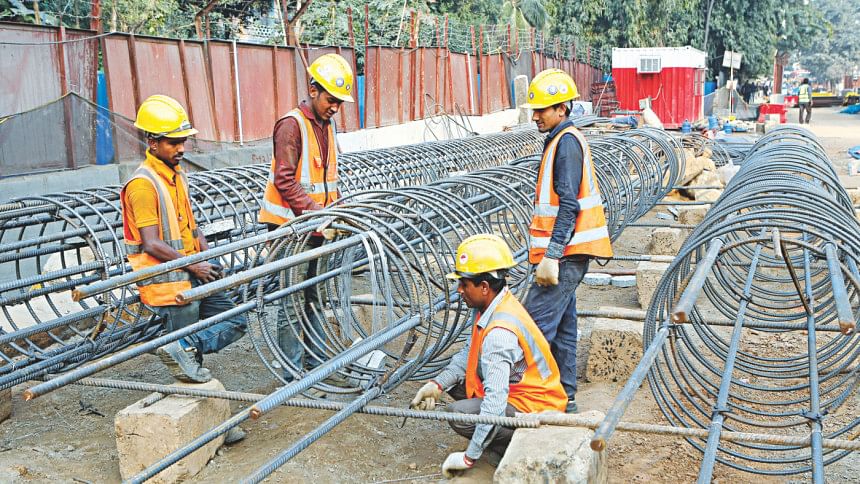
Besides these trainings, special measures have been planned for female employees, including day care systems and pick-up drop-off facilities, with safe in-site living dorms. "We believe empowering women will only make this project stronger. Initially, the number of female candidates who had applied to work with us was small. However, with positive word of mouth from selected candidates, their female peers were encouraged to apply and the number has been increasing with every new phase," Siddique added.
In addition, many other work aspects are also taken into consideration, especially regarding safety of the employees and workers. "Currently, the workers employed in the MRT construction sites have either worked before in similar foreign projects or are especially trained to perform such work," said N G Quig Mim, Project Manager, Planning and Operations Department, Utracon. "I have worked in Vietnam, Myanmar, Sri Lanka and Indonesia, and I am very pleased regarding the safety measures of this project. I look forward to the same safety standards for future employees as well. In that way, we will not have to worry about accidents and injuries."
Besides technical requirements, many other needs have surfaced with time, including a police force especially designed to ensure security for MRT commuters. Each emerging necessity is giving way to new employment facilities.
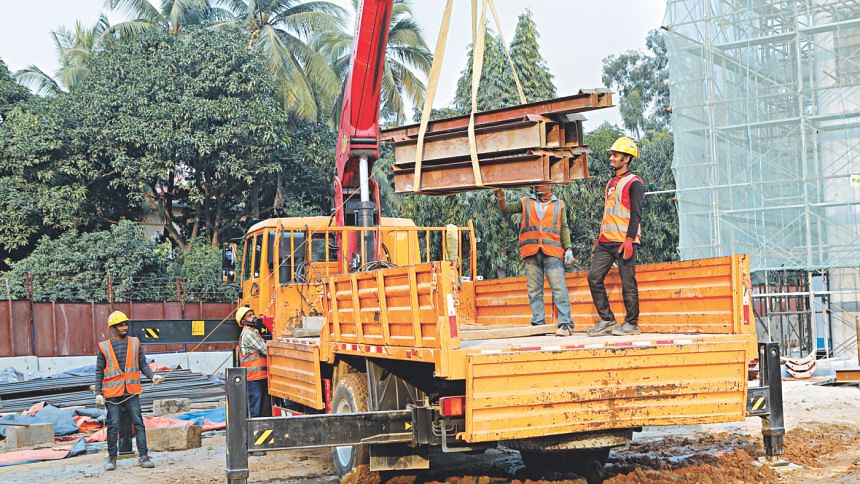
Md Sajid Hasan, a CSE graduate from BUET who is currently employed in the operations and maintenance department of DMTCL, shares his experience of trainings. "The trainings maintain a lot of standards and we have to maintain a very compact time schedule. The day often starts with a physical training session at 7 in the morning and ends with a game session in the evening. In between this, we have to attend several classes regularly," he shared. "We also have to take several exams, and submit assignments and reports from time to time."
The fourth vacancy announcement for MRT is currently under process and it will provide employment opportunities to over 56 promising individuals in various sectors, as public relation consultants, managers, traffic controllers, section engineers and many more. "We are working towards launching the MRT Lines 1 and 6 by 2021 and for that, we not only need to work on a fast-track process but also need to ensure that our employees are capable of operating this mode of transport. Thus, I encourage anyone who matches our requirements to apply," concluded M A N Siddique.

 For all latest news, follow The Daily Star's Google News channel.
For all latest news, follow The Daily Star's Google News channel. 



Comments